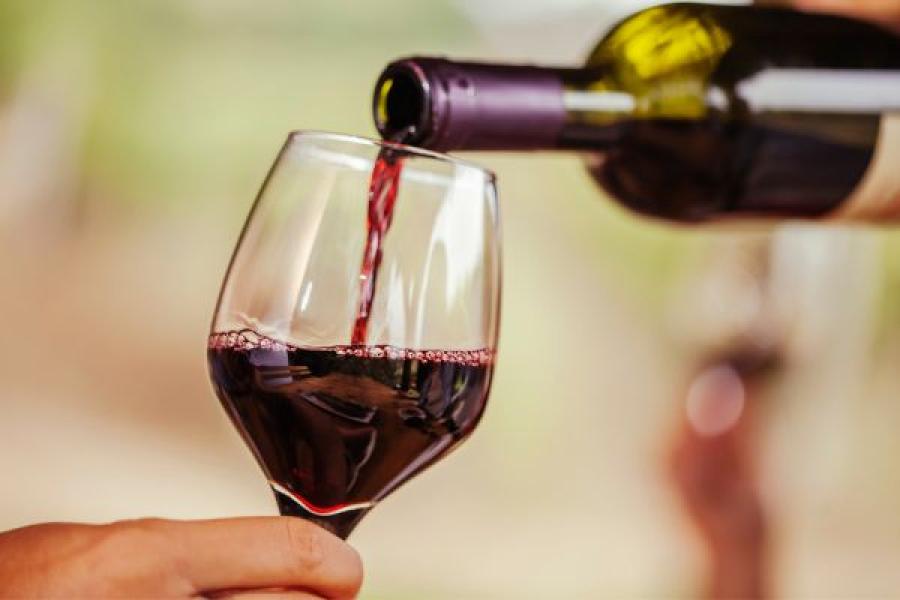Changes in Duty, How Lower Alcoholic Strength affects Wine

As we have seen the hottest tempturatures on record bringing fires, floods and other worrying storms to the worlds vineyards the British Government has created its own administrative storm by linking wine prices to the alcoholic strength of the wine.
I understand this and appreciate the health concerns of drinking products with a higher degree alcohol, but as ever, I like to promote the message of drinking less but drinking better. If this is truly a health issue, then why not also tax sugary foods and other drinks in the same way? Just a thought.
Anyway back on topic, sorry. As the vineyards and grapes receive more heat the grapes will have higher sugar levels. This means that when the pressed grape juice is fermented there is more sugar in the pressing which enables the yeasts to ferment naturally to higher strengths of alcohol before they die.
Speaking to winemakers over the year they tend to find that reducing alcohol content in wines is a challenging process particularly as alcohol is a natural byproduct of the fermentation of sugars in grapes. However, there are a few tricks that winemakers can employ to lower the alcohol content:
Managing the Harvest
Picking the grapes at an earlier stage of ripeness can result in lower sugar levels, which in turn will lead to lower alcohol levels. However, this can also affect the flavour and balance of the wine and the wine tends to be fruitier or sweeter in its style.
Addition of Water
This method involves adding water to the wine to dilute the alcohol content. However, it's crucial to do this carefully to avoid affecting the wine's flavour and overall quality. Also this process is not allowed in some parts of the world depending on the local wine making laws.
Reverse Osmosis
Reverse osmosis is a technical method that involves passing the wine through a membrane that separates alcohol and water. This can help to reduce alcohol content while retaining the wine's flavour components. It's a precise process that requires specialised equipment.
Spinning Cone Column
Also needing specalised equipment, and perhaps the most prefered option, this technique uses centrifugal force to separate alcohol and other volatile components from the wine. It's a more gentle method compared to reverse osmosis and is used by some winemakers to lower alcohol content.
Fermentation Management
Adjusting fermentation conditions, such as temperature and yeast selection, can impact the final alcohol content. Slower fermentation can result in less sugar being converted to alcohol.
Blending
Blending wines with lower alcohol content can help to reduce the overall alcohol level of the final product. However, this requires having wines with the desired characteristics available for blending. Again this process can be prevented by local wine making laws in certain regions.
Impact on Quaility
It's important to note that any method used to reduce alcohol content may also impact the wine's flavour, aroma, and overall quality. Additionally, wine regulations and labelling laws in various regions might have restrictions on how much the alcohol content can be lowered and still be labelled as a specific type of wine.
Winemakers should carefully consider the potential consequences of these methods and may need to experiment to find the best approach for achieving their desired results while maintaining the wine's overall quality.
Impact for the UK wine Consumer
As the UK is one of the first countries to link alcoholic strength to Government income I can see two issues.
Firstly will a winemaker invest in the technonogy to reduce wine strengths just to satisfiy one market? That is yet to be seen but such investments will have an impact on the price of the wine. So by saving .5% of strength here or there will that offset the cost of the duty that is to be saved? This will come down to the voumes that are being ordered.
Secondly we have already seen the price increases on still wines (and at the moment some small decreases in other wines), which may lead producers to turn their backs on the UK market if their product becomes more expensive.
So we are back to the mantra of drinking less but drinking better, and that is where my team at Weavers comes in.
